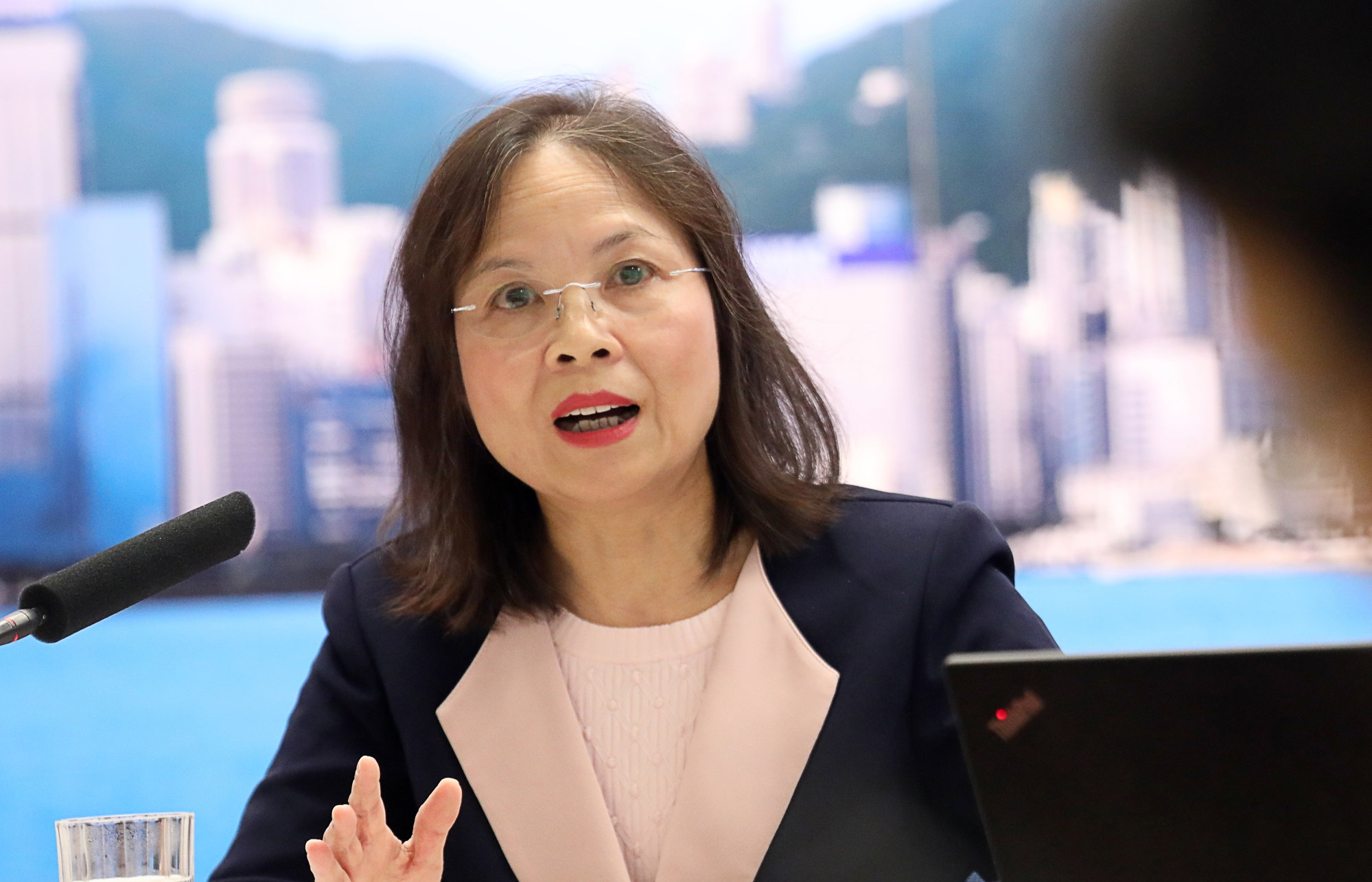
Hong Kong air quality standards could be tightened by 2025 in bid to prevent 3,150 premature deaths a year as pollution at its lowest in almost 3 decades
- Authorities say stricter air pollution rules would also prevent 2,300 hospitalisations, 927,900 outpatient cases and save HK$275 million in medical costs every year
- But lawmaker Frankie Yick says lower sulphur diesel fuel could be 40 per cent more expensive at the pumps and hit the livelihood of city’s seafarers
Officials on Tuesday also proposed a further reduction in the sulphur content of diesel fuel for ships and industrial use.
The move would reduce sulphur dioxide emissions, a major source of air pollution that can irritate people’s eyes and respiratory systems.
“To continuously improve air quality and strengthen the protection of public health, we comply with Hong Kong law … to review air quality indicators at least once every five years to assess the extent of air quality improvement,” Undersecretary for Environment and Ecology Diane Wong Shuk-han told lawmakers.

“Over the past two decades, we have been ramping up resources and efforts to promote and implement various emission reduction measures.
“These efforts have yielded results. In 2022, our air quality was the best since the handover.”
Now authorities want to cut the daily maximum amount of sulphur dioxide to 40 micrograms per cubic metre, down 10mcg, to align with the 2021 target set by the World Health Organization.
They also want to reduce the level of daily respirable suspended particulates, known as PM10, to 75 micrograms per cubic metre, down from 100mcg, and that of fine suspended particulates, PM2.5, to 37.5 micrograms per cubic metre, down from 50mcg.
Principal Assistant Secretary for Environment and Ecology Kenneth Leung Kai-ming said the revised standards would not only cut the death rate, but lead to 2,300 fewer hospitalisations and 927,900 outpatient cases a year and an annual saving of HK$275 million (US$35.1 million) in medical costs.
Hong Kong records best air quality in decade amid Covid-19 economic slowdown
“We have conducted two public consultations and collected public opinions online,” he said. “Initially, we can see our suggested changes are well-received by the public.”
Leung suggested tightening the fuel sulphur content limit for ships and industrial and commercial uses to 0.001 per cent, down from 0.05 per cent, to achieve the goal and bring Hong Kong’s fuel standards in line with other areas in the Pearl River Delta.
He told the Legislative Council’s environmental affairs panel, however, that exemptions would be given to ocean traders to “maintain Hong Kong’s competitiveness as an international shipping hub”.
“Importers and suppliers must register with regulatory agencies and submit regular reports to regulators,” Leung said.
If the government doesn’t do something about [diesel prices], pleasure vessel operators will be doomed
But some lawmakers said they were concerned about the tightened limits on sulphur content as fresh restrictions would affect the livelihood of city seafarers.
Frankie Yick Chi-ming, of the transport functional constituency, said diesel with 0.001 per cent sulphur could be more than 40 per cent more expensive than 0.05 per cent sulphur at the pumps.
“I support the government in adopting a pragmatic, step-by-step approach to improve air quality,” he said.
“But if the government doesn’t do something about [the price difference], our ferries will not be able to function and pleasure vessel operators will be doomed.”
No time to relax in push for cleaner air
Leung said authorities would study the problem and start discussions with the industry when necessary.
Wong also suggested lifting a ban on using liquid and solid fuel in Sha Tin, an area that authorities said was prone to air pollution due to its geography, because of the improvements in air quality.
The ban was introduced in the 1980s and applied to furnaces, engines, ovens and industrial plants.
Officials explained that, as Sha Tin had changed from an industrial area to a residential district over the past few decades, the ban was “obsolete” and its continued use would cause unnecessary restrictions on trade and public activities.
“[After the ban is lifted], restaurants will be able to use non-gaseous fuels such as ethanol gel, charcoal and paraffin for food heating purposes,” Leung said.
